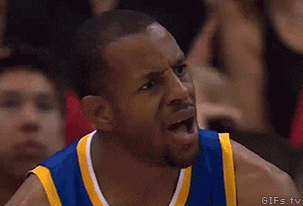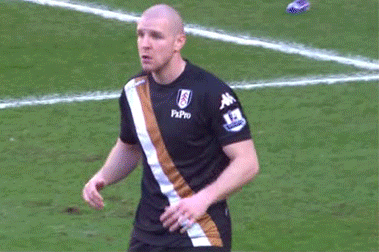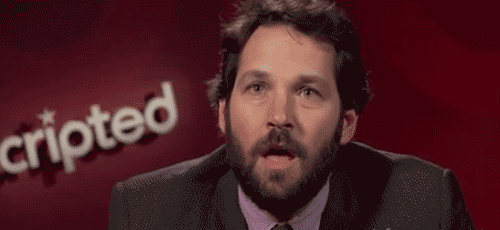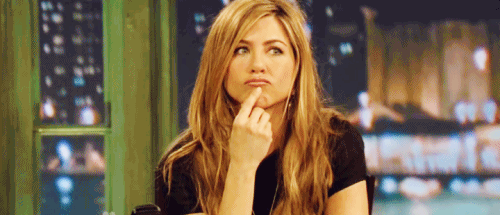At the recent Commonwealth Games held in Glasgow, Scotland, our Singapore team fared admirably against worthy opponents from different parts of the globe. Joseph Schooling broke the national record in the Men’s 100m Butterfly Finals, clocking the 4th fastest time in 2014. Derek Wong became the first Singaporean to reach the finals of the badminton Men’s Singles event, while Chrisnanta and Triyachart were also the first Singaporean duo to reach the finals of the badminton Men’s Doubles event. Shooters Jasmine Ser and rising star Martina Veloso performed brilliantly in their respective events, and our table tennis contingent brought home six golds, two silvers and two bronzes.
Yet, the Republic’s reactions to our achievements are surprisingly worrying, with many expressing their discontent with a mostly foreign camp representing our nation.
And this has led me thinking, what’s wrong with our sporting scene in Singapore? After much flipping around in bed, I decided to write the following article, expressing my concerns as well as my opinions on what exactly is wrong with our sports culture.
Some people think that by “sports culture”, I mean the policy of importing foreign players to play for our country. The foreign talent policy indeed has always been a major talking point for Singaporeans when the topic of local sports arises, but most fail to realise that the faults of our flailing system lie much deeper than that.
Singapore is an incredibly small and dense island. Travelling across the country usually means taking the MRT from the East to the West, a short 64 mins journey filled with silent, stressful looking commuters who are either glued to their phones, or praying that the train doesn’t break down again.
Most of the time though, they’re doing both.
Singapore has established itself as one of the most modernised and technologically advanced first world countries in the world, despite a lack of natural resources and land. As such, she is overly reliant on the one thing we’re not lacking in. I mean people, not sex scandals. And because of this heavy dependence, Singapore has created a culture where education takes extra importance above anything else, and unfortunately, a dull, grim, environment where grades dictate everything from jobs, further education, and society’s ruthless judgement that rarely considers an individual’s talent as a valid point of comparison.
From young, kids just study. Playtime, or rather, a lack thereof, is sacrificed as competitive parents arm their kids in pursuit of podium finishes in primary and secondary school that achieves absolutely nothing other than bragging rights and a possible downright destruction of a child’s morale and confidence. On top of expensive tuition classes and tightly-scheduled enrichment activities, the 21st century’s parents quest of crafting the ideal children has isolated the freedom of a child’s wants, which usually consists of more time outside the house, as well as more exposure to sports, in favor of a parent’s perceived route to success.

With most kids having no (real) chance at sports when young due to a lack of time devoted to studying, the initiative has been handed over to the government to try and influence impressionable youngsters to take on sports, work hard, and maybe represent out country one day.
But here comes the first problem.
How can a government expect their sport teams to succeed when they fail to implement an education system that ensures enough sports exposure from young? When I was in Secondary 1 and 2, I had 3 hours of lessons every 2 weeks, and it probably withered down to 2.25 hours because the teachers before that frequently releases us late, and we apparently have to be released early so we were not late for the next lesson. In polytechnics, where I’m studying in right now, there’s only a 1.5 hour lesson (it’s supposed to be 2, but my lecturer releases the class 30 mins earlier) per week for 12 weeks.
A semester has 16 weeks.
After the 12 weeks, you probably won’t exercise (much) for the next 2.5 years of your life. If you want exercise, you either find time to do it yourself, or join a CCA, which most will do neither, because we’re back to square one.
Studies are more important.
To really drill in my point, schools are doing nothing to solve the myopic problem in Singapore, other than giving our flyers (not sure if they still do it now) telling us how to protect our eyes, and then proceed to hold 3 hours of continuous lessons without any breaks. The Lion City has one of the highest myopic rates in the world, yet eye breaks doesn’t seem to be on the memo of schools and curriculum setters alike. In more competitive countries in the world like China, breaks are given every 40 mins (for primary school), and once a day, a nice little announcement with music will come through the PA system for a 10 minute eye exercise.
Notice, no one is discouraging a student from doing sports, but all the little actions and settings have implanted a mindset that education is so much more important than sports, and your eyes. Not only will he or she simply just study more and be put under even more pressure and scrutiny, sports simply will become something of a taboo they avoid in a grave attempt to appease.

The culture ingrained into most parents’ mind is that education is extremely important, and will heavily affect how others will treat and view you as a person. I did a quick little survey with 20 people, and none of their parents allowed them to go to the Singapore Sports School (SSC).
When I was in primary school, my parents didn’t allowed me to choose soccer as a CCA. So I told myself, it’s fine. I’ll just keep practicing. Every recess, I’ll fight my way to be the goalkeeper in our mini-matches. Back then, everyone wanted to be the goalkeeper, which is ironic because no one wants to be the goalkeeper now. I totally wasted my white shoes, my white uniforms, risked getting scolded by my teachers, stayed back after school and train by myself, yet after all that, my parents didn’t even allowed me to try out for SSC. They told me I would never succeed if I did, I’ll never make a decent living, and that I shouldn’t bother because so many people out there are vying for exactly the same thing which I wanted.
Yes, I didn’t even get to chance to choose. Or try.
When I was a bit older, I signed up for a training camp at an S-League club, and it was really fun. I learnt so much, and I can safely say that should I have not attended the camp, I would just be around twice the standard of Neymar. The next year, my parents did not let me participate because I did badly for my PSLE.
I scored 243.
When I was on a one-month internship back in Secondary 3, I took a day off to attend a trial at my hometown club Woodlands Wellington. I argued so much with my parents because they simply refuse to let me go, saying that it’s a waste of time, that I should focus on my education, that I should do something that’s actually legit. I didn’t talk to my Dad for a long time after that because of this incident.
I eventually did not attend the trials.
I can say the following without credible sources backing me up; what I mentioned above a few of many similar cases for youngsters in Singapore. My Written Communication lecturer would probably frown upon me not using any sources to back my statement, but I’m more than certain that this biased-against-sports mindset has, as a matter of fact, grown much worse as we march into the second decade of the second millennium. Really, just ask around.

Not to start a Maria Hertogh or bring racial stereotypes into play, but it’s quite evident that Malay families are more open to the idea of sports. While many of us Chinese are stuck in houses studying, I often see young Malay kids roaming about the void deck, playing soccer or ‘catching’ on weekends, after school, and pretty much all the time. When I was little, I remembered being so envious of them. My parents will probably go berserk if I left the house on my own back then. Having trained informally from young, it’s little surprise that the majority of our national team are Malays.
So, based on our country’s stats on race and adjusting a few discrepancies, we’re only left with 40% of our talent pool.
We can work with 40% right?
Hell no.
National Service is a massive stumbling block in an athlete’s career. Two and a half years of crucial development is gone at the expense of serving the nation. It is widely believed in the football world that between the ages of 18 and 21 years is the most crucial period for the physical, mental and technical development of players where they are on the verge of breakthroughs in final preparations towards the rigours of professional football. Theo Walcott, Gareth Bale, Alex Oxlade-Chamberlain, Aaron Ramsey and Adnan Januzaj are a few of many well-illustrated examples of how training consistently translates into a huge growth spurt in technique and overall development that will serve them well as they take on the exhausting, unforgiving and brutal world of professional soccer.
Meanwhile, in Singapore, young players on active duty are having great trouble participating in their teams’ matches and trainings. Coaches and managers are often stuck with uncertain tactics and training regimes, as unpredictable schedules of NSFs often clashed with a team’s preparations. And even when National Service is completed, some footballers will elect to leave soccer to embark on another career, some will leave for their girlfriends, and some will simply lose interest in the Beautiful Game. Not only is a national’s best effort to produce respectable results and performances on the pitch and other world-class platforms stunted, a huge chunk of talent is lost as well during the prime years of many young males in Singapore.

While National Service is an unfortunate obligation that severely hinders an athlete’s performance, the truth is that the damage has already been done during a child’s schooling days. The government does provide some kind of platform for athletes to demonstrate, exhibits their skills, and ultimately apply what they have learnt during their training sessions. We have a school tournament, but that’s pretty much it for the entire year. While other countries have year-round leagues, undiscovered, underrated players with boundless potential in Singapore are continuously stuck with their development, unless their schools decide to organise friendlies or participate in external tournaments. But how many schools have soccer listed as the top of their agendas? From a Singaporean education point of view, would you rather purchase 10 textbooks for the school population, or 10 soccer balls for a soccer team that isn’t living up to expectations by two hundred and thirty seven miles?
Although some might argue that you can train by yourself, at some point in time, you’ll actually have to play the sport itself in order to really take your game to the next level. It used to be 10 league games in secondary school for me (in primary school a season used to be 20 games), but now it decreased to a paltry 5 for most schools, and those who are eliminated are out of any major government-organised events till the next year. How can one truly be motivated into greater things when there’s absolutely nothing to look forward to? The passion and fire in their hearts will inevitably be extinguished with a sense of despair and hopelessness as they slowly let the cold, hard truth creep into their minds, once full of energy and hope.
The support just isn’t there. You and I both know it.

One of Mediacorp’s most popular shows that came out in recent years was the series First XI, a soccer reality programme where participants from all over the island came forth to try out for a place in a team that’s eventually going to face a selection side in Singapore, as well as a chance to train at Real Madrid when the ‘season’ is over. It was also meant as a launching platform for budding footballers to catch the eyes of local scouts and hopefully get a chance to go attend trails with various professional clubs and sign with them. Two seasons, two visits to Madrid, and two matches against “All-Star” teams involving stars like Jordan Webb, Robbie Fowler, Dietmar Hamann, Des Walker, and Steve Harkness later, there were hardly any news of them in the local media. What happened to the contestants? Where are they? Did they get trials? Despite promising news involving trials with various clubs, nothing concrete came out. So far, after some digging, I found out that only two players got signed, and both are plying their trade in LionsXII.
Two players out of about 30? What’s up with that? And if I had to ‘stalk’ so extensively just to find out more information about where the players are and all that, how do you expect fanbases for the various clubs and individuals to be formed when news and updates about them are made so unready to the general public?
Gombak United has been out for this season’s Great Eastern-Yeo’s S-League due to financial issues. Clubs and professional teams have always been struggling to find sponsorships. Individual athletes themselves are floundering to secure funding in order to participate in overseas tournaments and training camps.
Not long ago, the National Football League (Singapore) decided to limit the age of all players in the amateur league to a maximum of 35. While it is understandable that FAS did so to increase the quality of the league – the champions of NFL’s top division Police Sports Association conceded 29 goals and scored a solitary goal in three matches against S-League sides during the recent Starhub League Cup – it doesn’t bode well for Singapore when we can’t even enjoy a game of sports because of our age and supposed lack of quality.
First of all, let’s stop trying to pull each other legs right about now because there’s no ‘quality’. Secondly, interest is one of the primary factors for sponsorships to jump onboard a brand. The last I check, limiting the age for an amateur league doesn’t get the job done. Older athletes, regardless of whether they’re amateurs or formal professionals, are a motivation and moonlight as role models for younger athletes like me. Whenever I play against 50 year-old uncles at futsal courts, I’ll be in full admiration of them as their craftiness, experience, and surprising supply of stamina overwhelms a way younger me that has so much more to learn. When the interest is there, not only will the talent pool open up, but sponsors will be more willing to jump on as mentioned earlier, and the quality of facilities and training will slowly increase. It’s a slow and painful process. Transitions are always difficult; just ask David Moyes. As much as talent is at play here, it is ignorant to overlook the fact that budget alone can make or break an sportsperson and a nation’s establishment for a sporting culture. Right now, drumming up interest is the priority. When sponsorship dollars starts rolling in, then we’ll start talking about quality.

Even with a substantial amount of quality though, it seems that Singaporeans are still having trouble getting approval from the higher-ups. Our Singapore U23 team looks set to miss out on playing at the Asian Games held later this year because it did not meet a bunch of ridiculous guidelines set by the Singapore National Olympic Council (SNOC). SNOC’s stand was that our team simply can’t mount a serious challenge if they fail to show that they are capable of handling their own against (any of) the top 6 teams in Asia. While FAS probably misunderstood that and arranged for a friendly against Bahrain, ranked 14th in Asia, it just didn’t make sense in the first place to issue such an unrealistic challenge to players who have missed more than two years of essential training due to National Service, and have lesser access to world-class facilities and training grounds than their other Asian counterparts.
Soccer is the no. 1 sport in Singapore. Our team rarely get chances to perform against top opposition, and for SNOC to expect results against the likes of Japan and Korea is just plain ignorant on their part. Our country’s sporting system has already been limited due to the reasons listed above, and yet, some jokers want an overnight miracle against some of the top teams in the world, or else we can’t attend a tournament that’s meant for us to improve and get stronger?
I’m sorry, but this is absurd.
And mind you, we beat Bahrain 3-2.
Away.

The issue of foreign talents is one that has been plaguing our nation for the past 6.9 years (haha). It’s one that’s touchy, and consists of fierce but logical opposing arguments and perspectives from various Singaporeans. While some think that foreign players help strengthen our team and give us a stronger chance of competing for a title, and that country of origin shouldn’t matter, others strongly feel that more Singaporeans should be given a shot, and that we should not resort to “cheap tactics” and “buy” our talents.
Me?
Let’s just say I’m not a fan of Manchester City.
I hope the government will give more chances to our local athletes. To be frank, I can’t really be bothered whether we’re first or last. When the name of one of our representatives appears beside our humble flag on the television screen, I’m sure we all feel a sense of pride. We’ll feel a li’ll disappointed if they don’t win, and let out a little sigh, but at the end of the day, we’re still proud of their commitments and efforts. Look at Derek Wong, our national shuttler who bravely smashed his way to the final before crashing out in a losing effort to India’s Kashyap Parupalli. He won silver, but our nation erupted as though he won gold.
Look at San Marino, the last ranked team on FIFA’s international standings. The country itself is not much different from Singapore. It is one of the wealthiest countries in the world in terms of GDP (per capita), has a highly stable economy, one of the lowest unemployment rates in Europe, no national debt and a budget surplus. Yet, with all that, along with a tiny population of 30,000+, all the players in their teams are pure citizens there, with many holding second jobs.

Singapore has never been a real sports powerhouse when compared with the entire world, so as a Singaporean, I really don’t care whether we win or not. I just want to see more of my fellow countrymen given a chance to represent our nation and strut their stuff on some of the biggest stages in the world.
As much as foreign athletes are essential to up the standards of Singapore athletes and keep them on their toes, our government’s actions are displaying a different side of meritocracy, the idea that has served us well till recent times. Yes, if you’re really good, sure, you win. Everything’s based on a merit system. The better ones get in. But if the government is hellbent on providing a level playing field for everybody, shouldn’t they look at their system from another perspective, like restricting the amount of foreigners and letting our own Singaporeans compete within themselves for a berth at their respective sporting events? I’m a firm believer that foreign talent is essential, but the staggering amount of athletes representing us that are not from Singapore is truly a worrying sign.
A sign that tells me that the government just wants to get success as fast as possible.
Is it fair to our local athletes? Think about it. Why, as national athletes, can they not have a peace of mind knowing that their places are secured, realising that should a better foreigner with way superior skills came along, they’ll be chucked behind, receive a slow, gradual lack of focus, and eventually leave sports to embark on a more ‘legit’, mainstream career?
In short, shouldn’t my countrymen be protected before the government starts yapping about giving everyone an equal opportunity?

In a hectic metropolitan city where the hustle and bustle never takes a breather, there simply isn’t enough time for sports. We’re so obsessed with our careers that sports isn’t part of our DNA anymore. Our young ones are addicted to technology at a mind-numbing age, eyes fixated on tiny screens while their postures adapts to their dependence on technology. If the country can actually rouse support and hype for sporting events, give more support to talents, as well as handing out more initiatives to promote a more dynamic sporting culture, our country’s sports state wouldn’t be in such a, I’m sorry, sorry, state. Let’s not kid ourselves by saying we made true progress.
We’re not even remotely close.
So do you still want to know what’s wrong with sports in Singapore? Because you already went through it yourself.
P.S. Happy 49th Birthday Singapore.
